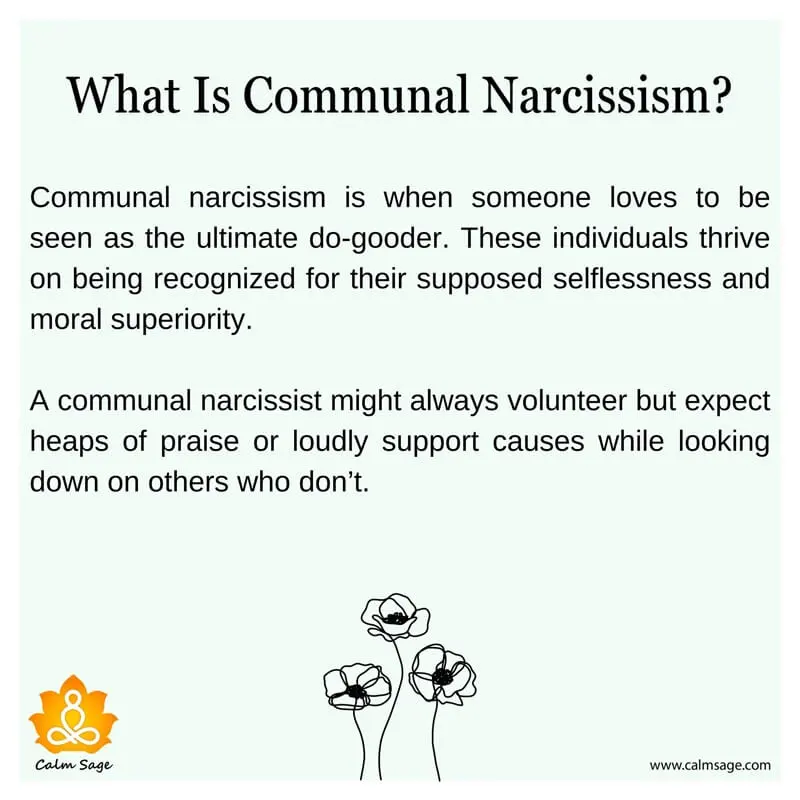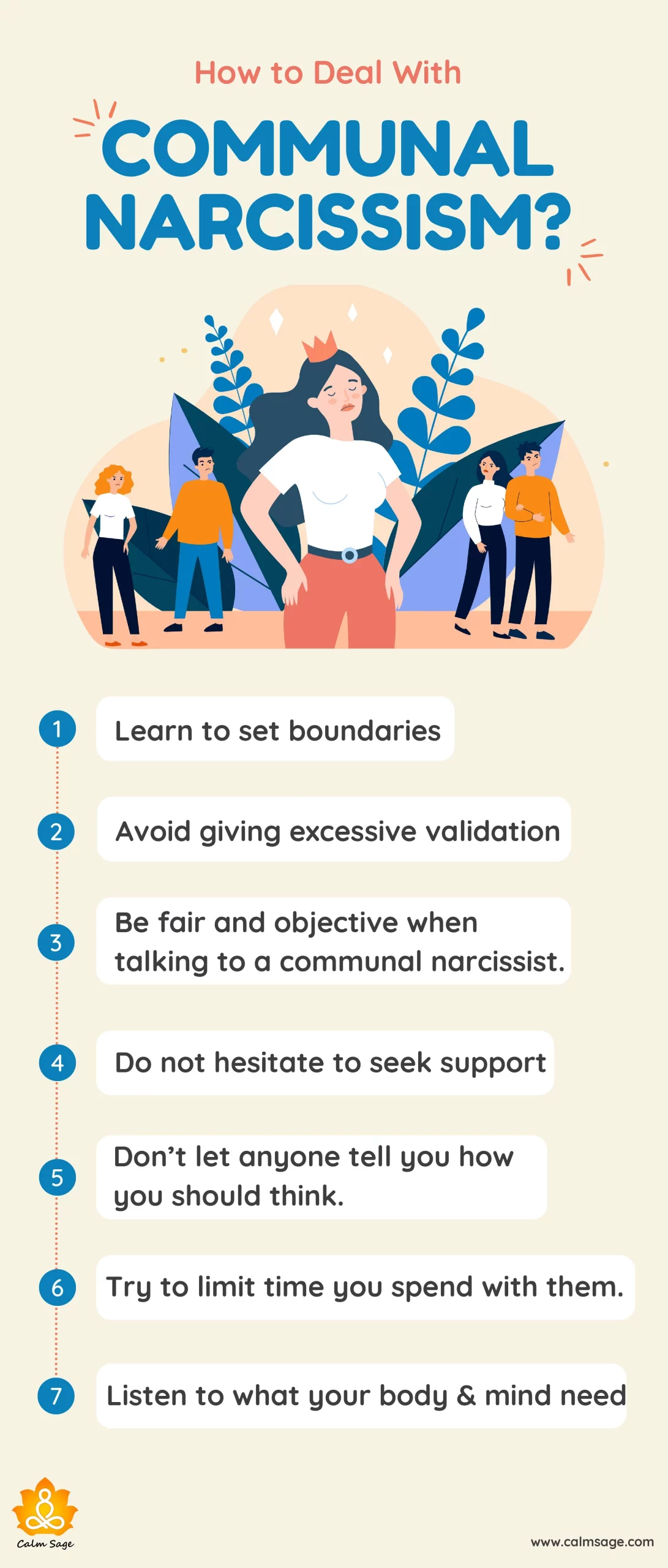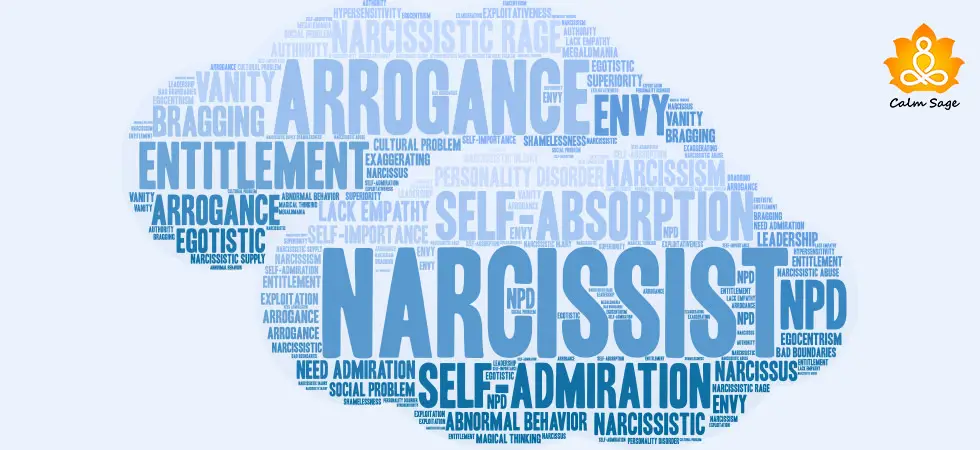Communal Narcissism Exists and Here’s What You Need to Know About It

Narcissism is a term we can associate with self-centeredness, an inflated sense of ego, a sense of grandiose, and a surprising lack of empathy. However, not all types of narcissism fit into this description. One of such types is communal narcissism. Communal narcissism is a lesser-known type of narcissism, but as impactful as other variants of narcissistic behavior.
Unlike the more common narcissistic behavior aka grandiose narcissistic personality who seek admiration and validation with their achievements, communal narcissists get their sense of superiority and self-worth from their perceived altruism and community engagement.
Who would believe that narcissists can exist in a society by being altruistic but subtly egoistic? Well, that’s what communal narcissism is. In today’s article, we’re exploring the signs of communal narcissists, how they act, and how you can deal with them.
Communal Narcissism: What Is It?
Communal narcissism is a subtype of narcissism where a person portrays themselves as highly altruistic, caring, and giving. This person believes that they are the epitome of kindness and selflessness. However, beneath the surface lies true narcissistic traits – the need for admiration, validation, and superiority.
While communal narcissism might genuinely involve helping behavior, the main motivation is to boost one’s self-image and receive praise and recognition from other people. This can create a paradox where the seemingly selflessness is driven by selfish motives.

Signs Of Communal Narcissism
Identifying the signs of communal narcissism can be tough because the actions of communal narcissists often look positive and socially acceptable. However, there are certain signs you can watch out for to separate communal narcissism from genuinely altruistic behavior:
- Communal narcissists go out of their way to help others but make their actions visible. They talk about their good deeds and expect to get recognized for their actions.
- These types of narcissists crave admiration and validation from others for their efforts. If they don’t receive praise, then they become angry.
- Communal narcissists believe that they are more kind and caring than others. This sense of superiority can lead to a dismissive attitude towards others.
- These narcissists use their good deeds to manipulate others by reminding others of their past favors. They also use guilt to control others.
- Communal narcissists thrive on being the center of attention in social situations. They do so by highlighting their contributions to society and their “selflessness“.
- When it comes to empathy, communal narcissists lack it. Their concern for others is more about how it reflects them and their actions, rather than the genuine well-being of others.
Communal Narcissism Examples
Here’s how communal narcissists look like in real life:
- The Charitable One: They are highly involved in community work and want to be recognized by their fundraising efforts by receiving accolades for their efforts.
- The Self-proclaimed One: They take the role of a mentor, offering guidance and support to others. However, the advice isn’t always needed and yet, they expect gratitude in return.
- The Heroic One: This kind of communal narcissist is common in friendships and relationships. They remind others of the sacrifices they’ve made and expect acknowledgement for their “heroic” actions in return.
Some common phrases you might hear from a communal narcissist can be something like:
- “I always go out of my way to help others, but no one appreciates it.”
- “If it weren’t for me, this project would have failed.”
- “I’m too caring for my own good.”
- “No one seems to understand the sacrifices I make.”
- “I never do it for recognition, but it’s nice to be praised for my efforts.”
How to Deal With Communal Narcissism?
Dealing with communal narcissists can be tough, especially when they are close to you. However, you can learn to deal with them with some appropriate strategies such as:
1. Learn to set boundaries
Learn how to clearly define your boundaries and speak about what is acceptable and what’s not. Communal narcissists might try to overstep boundaries, so it’s important to state them clearly and enforce them firmly.
2. Limit validation
Avoid giving excessive validation and feed the communal narcissist’s need for praise and admiration. Instead, focus on recognizing specific actions without feeding their ego and their need for constant validation.
3. Be objective
Try to keep a balanced perspective and recognize manipulative behaviors in communal narcissists. Don’t let their altruistic facade cloud your judgment. Be fair and objective when talking to a communal narcissist.
4. Seek support
If there’s a communal narcissist near you and if their behavior overwhelms you, then do not hesitate to seek professional support. Having a professional to guide you can help you develop effective coping strategies to deal with a communal narcissist.
5. Stay true to your beliefs
Don’t let anyone tell you how you should think. There’s no pressure to conform to others so be yourself. If a communal narcissist tries to guilt you or shame you, don’t cave in. You are not defined by others’ values and beliefs, only yours.
6. Interact less with them
If there’s a communal narcissist in your life, then try to limit the time you spend in their company. This can help you from not feeling too overwhelmed by their words and actions. If you’re attending an event where you know their actions will make you upset, draw boundaries.
7. Take care of yourself
Being around a communal narcissist can be overwhelming, so you need to take care of yourself. Don’t ignore your need. Listen to what your body and mind need and cater to your needs without feeling guilty for your health.
Dealing with communal narcissism is challenging, but with the right strategies and support you can do it. Don’t let yourself give in to societal pressure and stand by your values and beliefs.

Wrapping Up…
Communal narcissism is a complex and lesser-known type of narcissism. While communal narcissists may appear to be highly altruistic and kind, their behaviors and actions are far from selfless and are often driven by a need for admiration and validation. Spotting the signs of communal narcissism and understanding the motives can help you manage such interactions effectively.
I hope this blog helped you understand what communal narcissism is, its signs, and how to deal with communal narcissists. Let us know your thoughts on communal narcissism in the comments below.
Take Care!




















